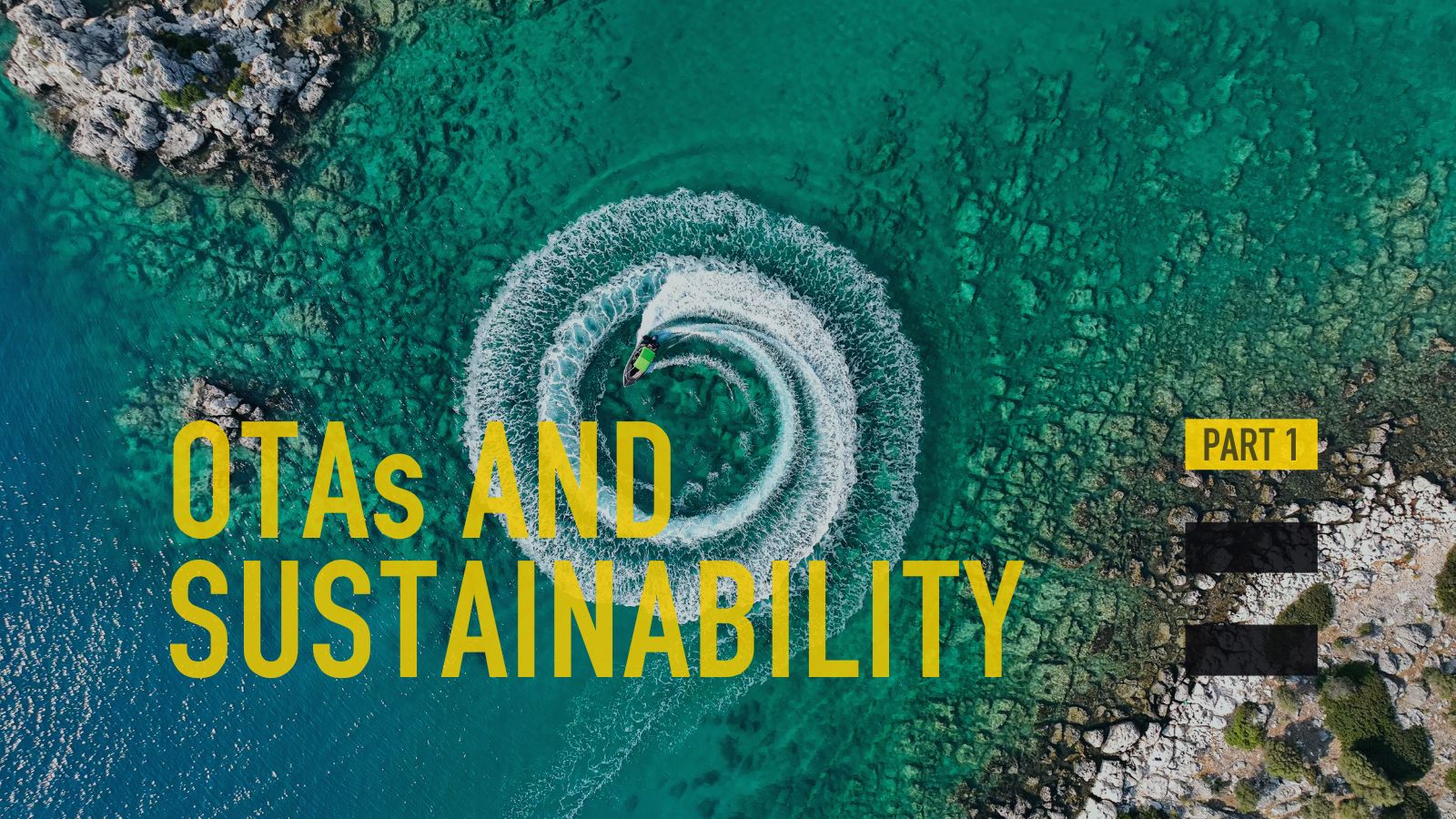This is our first post in a series of three articles delving deeper into how the world’s leading Online Travel Agencies (OTAs) are addressing the growing customer demand for sustainable travel choices. As climate change affects human movement, there will be increased calls for more sustainable options to explore the world.
The first essay explores the state of today’s travelers and their changing attitudes and behaviors towards sustainable travel preferences. This includes an overview of the latest consumer research with data-driven insights in this field, as well as a quick summary of the major hurdles that make it challenging for OTAs to address these needs.
Check out subsequent posts in this series to learn about A) the concrete products, services, and initiatives major OTAs have launched thus far to cater to rising sustainability concerns of travelers and B) what OTAs can do in the future to better serve their customers in making sustainable travel choices.
The Rising Sustainability Concerns of Travelers
With each passing year, the impacts of climate change grow more dire. Record-breaking temperatures across the globe have resulted in forest fires, floods, famine, and other unprecedented disasters. In the midst of so much uncertainty, people are becoming more aware of how their choices and decisions affect the world at large.
In the era of globalization, people are more connected than ever before. Loved ones span continents. Folks are constantly on the move, seeking out experiences and adventure. While the ability to traverse the globe is undeniably attractive, tourism is responsible for a minimum of 8% of global CO2 emissions. As the public wakes up to this foreboding reality, the time to act has become more pressing than ever.
Travelers are increasingly expressing their desires to make smarter, more sustainable travel choices. While this is the case, that doesn’t necessarily mean they will follow through with action. However, in response to this growing concern, travel providers, which include OTAs, are launching or exploring sustainable travel offers. It remains to be seen whether or not said offers will serve the needs of travelers or how existing ones might be improved. We will
explore these questions in our article series.
For starters, it is imperative we take a closer look at today’s travelers. There have been several research reports published by travel brands, such as Booking.com, Skyscanner, and Expedia, all of which have produced invaluable insights. Across these different reports, the same sentiment was expressed: sustainability is top of mind for the majority of travelers, as you can see in the chart below.
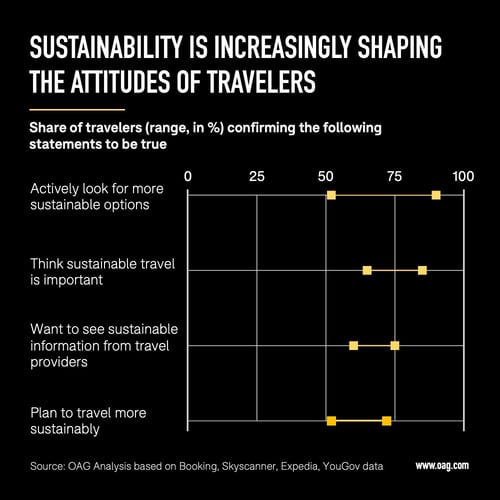
Of those surveyed, the vast majority shared that they are actively seeking out more sustainable options when it comes to travel. For YouGov, 53% feel this way. In fact, upwards of 90% of travelers do, according to Expedia.
Sustainability has arrived at the forefront of travel decisions. Respondents in more than one survey expressed that the topic is important to them. In 2021, a Skyscanner survey evidenced that 65% of people had this opinion, while in 2022, 85% of respondents to a Booking.com survey shared the same response.
Sustainability is also a hot topic when it comes to decision-making, factoring in heavily as consumers plan trips. In fact, three-quarters of respondents expressed that they want to see and access more information regarding sustainability from travel providers to help make said decisions. Specifically, 75% of respondents in the aforementioned Expedia survey had this opinion, and in 2021, 60% shared this sentiment, according to Skyscanner.
Furthermore, more than half of all travelers confirmed that they would travel more sustainably in the future—71% according to Booking.com, 53% according to YouGov, and 65% according to Expedia.
With all these insights in mind, it seems quite obvious that more and more travelers demand OTAs to offer greener travel options. We will explore what this could look like.
But before going there, it’s not enough to just analyze survey data. We need to understand the actual behaviors of travelers since the aforementioned survey data must be taken with a grain of salt.
The Major Challenges To Sustainable Travel
There are three factors that weaken the idea that it’s easy for OTAs to cater to the desire for more sustainable travel options. This is due to the fact that most travelers are hesitant to actually book these offers.
Let’s take a closer look at why this is the case.
1. There is a cognitive dissonance
It has been evidenced that there is a wide discrepancy between the alleged desire of consumers to travel sustainably and their actual behavior. In a 2020 research experiment conducted by the Lufthansa Innovation Hub and flight booking mobile app Hopper, actual Hopper users that expressed an interest in booking more sustainable flights were given the chance to offset their flights’ carbon emissions. However, only a tiny minority of users actually followed through.
Unfortunately, such real-world consumer behavior shows that there is a frustrating paradox faced by companies when it comes to the introduction of more sustainable offerings. This is especially pronounced in the travel context, a space where budget hunters are looking to cut costs.
Undoubtedly, the majority of consumers have positive attitudes toward eco-friendly products and services, as we learned before. But most people won’t put their money where their mouth is. This cognitive dissonance in the travel context is being increasingly studied, especially in the aforementioned case of whether people are actually offsetting the CO2 emissions of their flights.
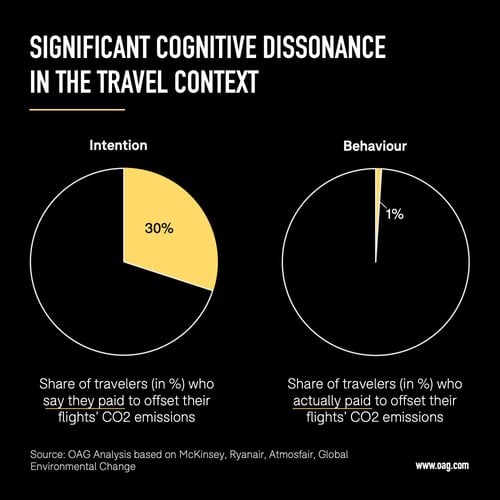
According to surveys from multiple sources, up to one-third of travelers expressed that they pay to offset their flights (16% according to Skyscanner, 25% as reported by YouGov, and 30% as surveyed by McKinsey). However, when we look at the actual number of flights being offset by travelers, as reported by airlines or offsetting organizations, the figures reported are far lower.
- According to Ryanair boss Michael O'Leary, only 1% of his passengers pay an extra €2 fee to offset their flight’s emissions.
- IATA reported that in 2019, just 1% of passengers offset their carbon emissions through voluntary programs.
- In 2021, Atmosfair reported that each year roughly one million people offset their emissions from travel. This sounds like a lot, but keep in mind that US airlines alone carried 674 million passengers in 2021. This translates to clearly less than 1%.
- Even more worrisome is a study that used real data from an undisclosed European airline in March 2022, which found that the willingness to pay for voluntary offset was 0%. And the “average-mean willingness to pay” was a mere 1€ per person.
2. Travel is not a top priority when it comes to sustainability for most people
There is another reason why consumers hold back from making more sustainable travel decisions thus far. When it comes to sustainability, travel simply isn’t the primary concern for people looking to change the way they live.
Instead, folks might consider taking a cold shower or turning off the lights in order to use less energy. Rarely do people want to cut back on their much-deserved holiday plans.
This idea was recently evidenced in a 2022 Deloitte survey: In a list of 21 options describing actions that consumers can take to lead a more sustainable life, travel and transport ranked very low. For example, 75% of those surveyed said they want to reduce household and food waste (#1), while “only” 34% shared that they want to reduce air travel (#14).
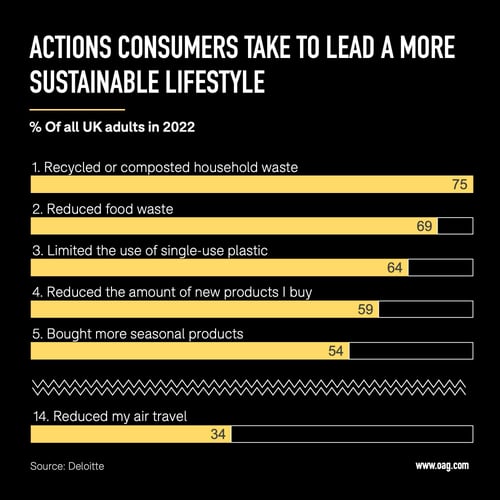
It’s no secret that travel is low on the priority list for consumers wishing to lead sustainable lives. This is important to keep in mind amid survey results suggesting that “71% of consumers say that they want to travel more sustainably” (Booking.com). This result still ranks lower than other consumer choices and behaviors.
Additionally, it is important to keep in mind that sustainability is a “positive social pressure” topic in general, one that survey respondents feel they should care about a lot.
While this is the case, people want to hold high sustainability standards while not necessarily acting accordingly. In turn, survey data, as presented at the beginning of this article, might skew optimistically and trend towards the positive.
3. Travelers face hurdles when it comes to making sustainable travel choices
There’s a lot to take into consideration. Given the aforementioned points, OTAs might believe that it is too difficult to incentivize sustainable travel choices. As a result, it might not be worth it at all or something to just have on paper to appear environmentally conscious to consumers.
However, this is just an excuse. Yes, cognitive dissonance, alongside the deprioritization of travel as a place to make sustainable decisions, affects how people behave. Despite this, travelers face several challenges across today’s travel booking journeys, all of which add another dimension of complexity.
Survey results from several previously mentioned research reports in the travel context confirm this.
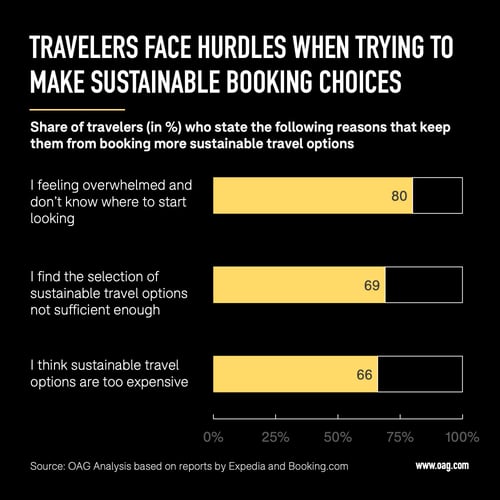
The reasons that consumers feel are keeping them from traveling more sustainably include:
- 80% of consumers said they felt overwhelmed and didn’t know where to start looking for sustainable travel options, according to Expedia. This is understandable, given that in the case of flight emissions, for instance, several methodologies for calculation exist. Since the total emissions of a flight depend on variables such as the aircraft model, engine type, and age of aircraft, it is very hard for travelers to grasp differences between stated emissions on booking pages—something a rising number of OTAs have started listing on their platforms as we will explore in the second article of this series.
- Additionally, 69% of travelers think that the selection of sustainable travel options is insufficient, as Booking.com found out. This emphasizes the point that travelers expect more sophisticated options to book greener travel choices these days—we will get into this in the final article of this series.
- And ultimately, two-thirds find sustainable travel options simply too expensive, as Expedia discovered. Here, it seems quite obvious that travel providers like OTAs need to educate their customers better because, as we know, basic offsetting schemes, such as the case of planting trees that compensate a trip’s emissions, oftentimes don't cost more than a few dollars.
Undoubtedly, there seems to be a lack of information and resources available to educate people about sustainable travel options. This is where OTAs have to come in and can make a difference.
Here's What OTAs Can Do
The clear takeaway here is: Travel providers, such as OTAs, can educate travelers on how to travel more sustainably. At present, such education and awareness-raising are not being carried out properly. Otherwise, travelers would not raise such an array of concerns.
These are particularly pronounced when it comes to the lack of information available to determine how one can best travel more sustainably.
So, why exactly is this information missing?
Well, it’s important to consider what OTAs do to cater to this growing interest, which we will explore in the second article of this blog series. Here, we will compare and contrast the products and services currently offered by major OTAs for sustainable travel bookings.
In the final article of the series, you will learn how OTAs can address booking hurdles, including those mentioned in this piece. Additionally, we will go beyond what OTAs offer today and what is on the horizon for the future.
So, stay tuned to learn more about these exciting prospects.
OTAs and Sustainability Blog Series:
Part 2: Explore the products and services offered by major OTAs for sustainable travel bookings Read Now
Part 3: How can OTAs better serve their customers in making sustainable travel choices? Read Now


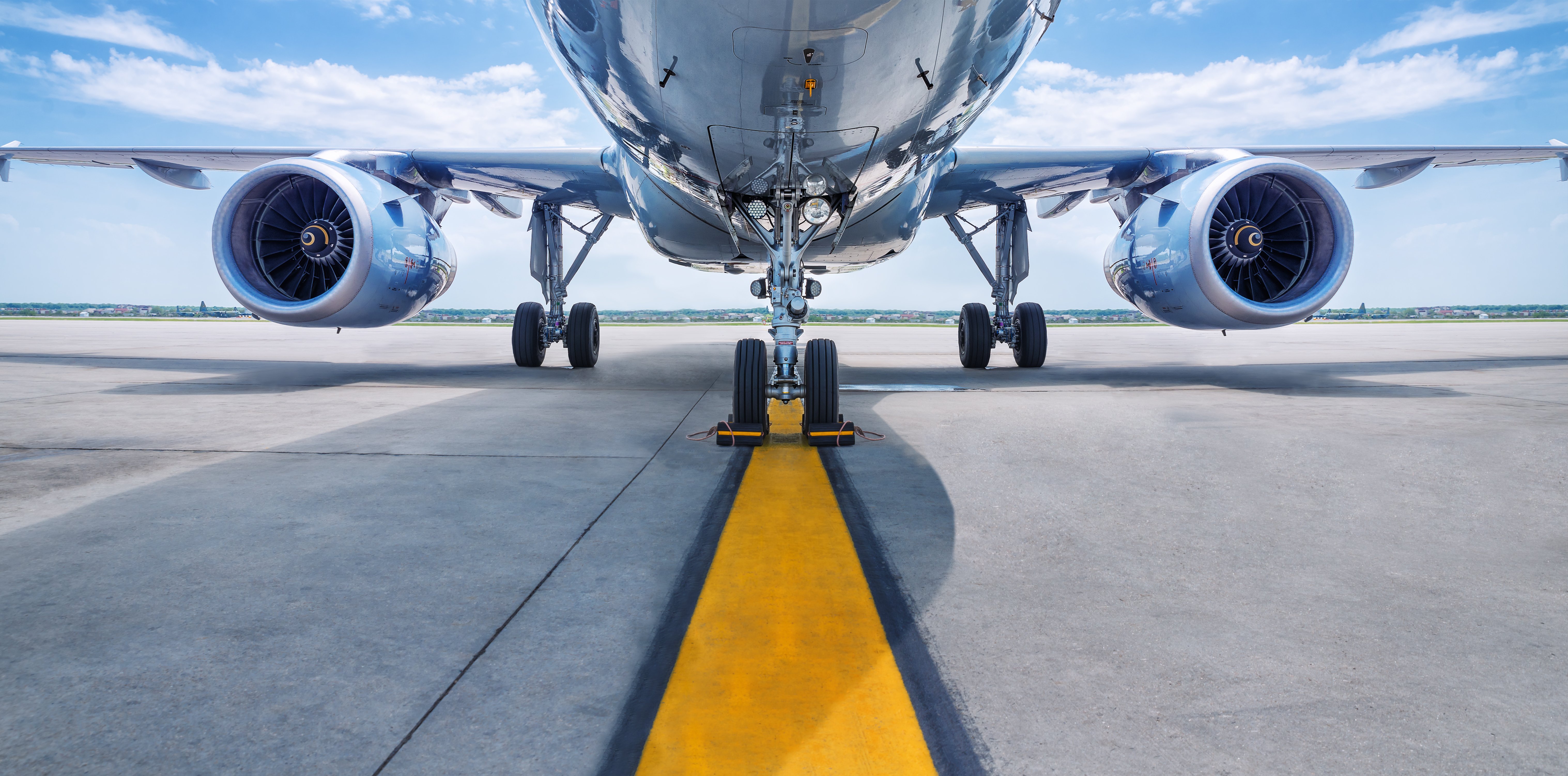

.jpg)

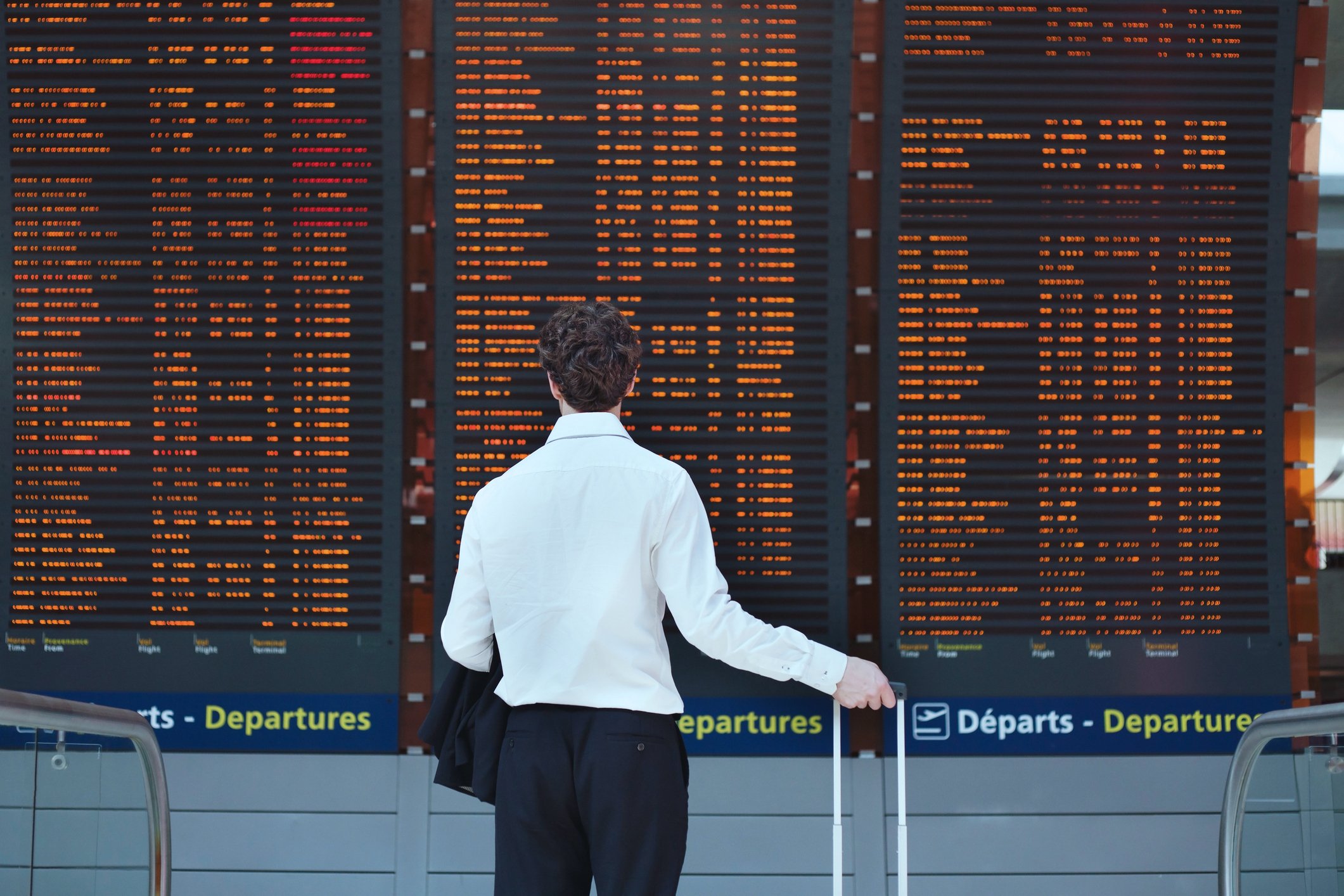

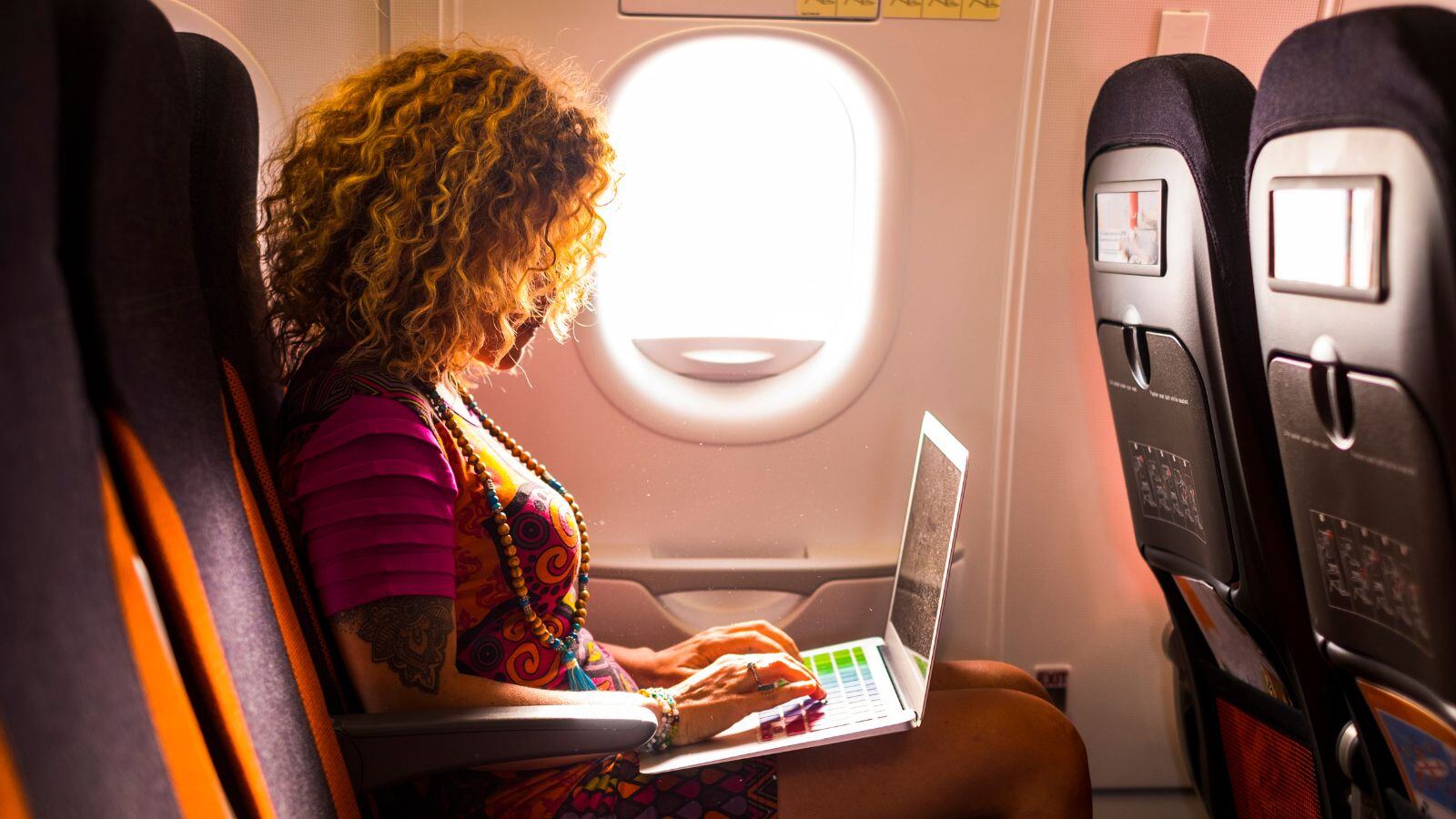
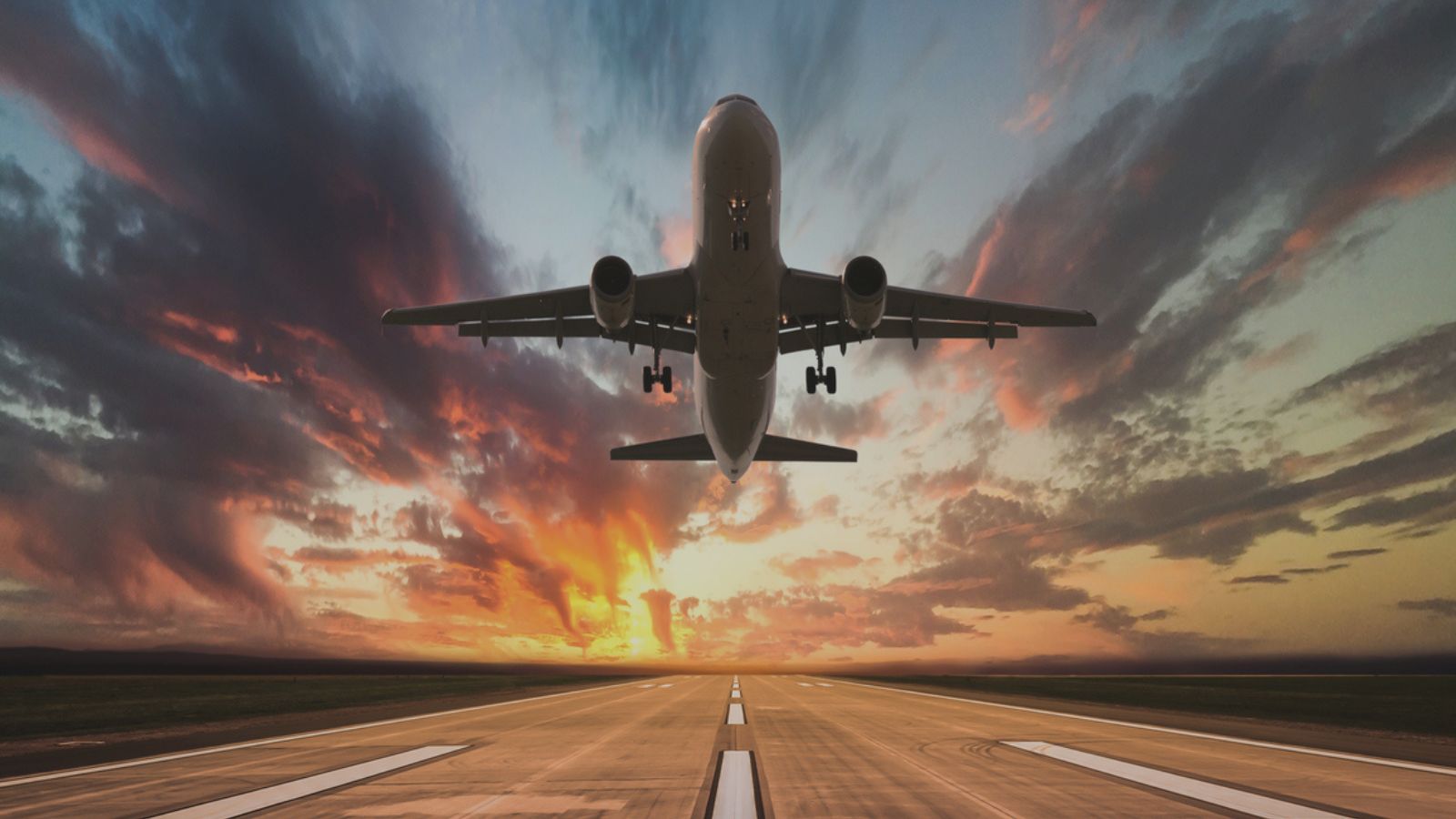
.png)







